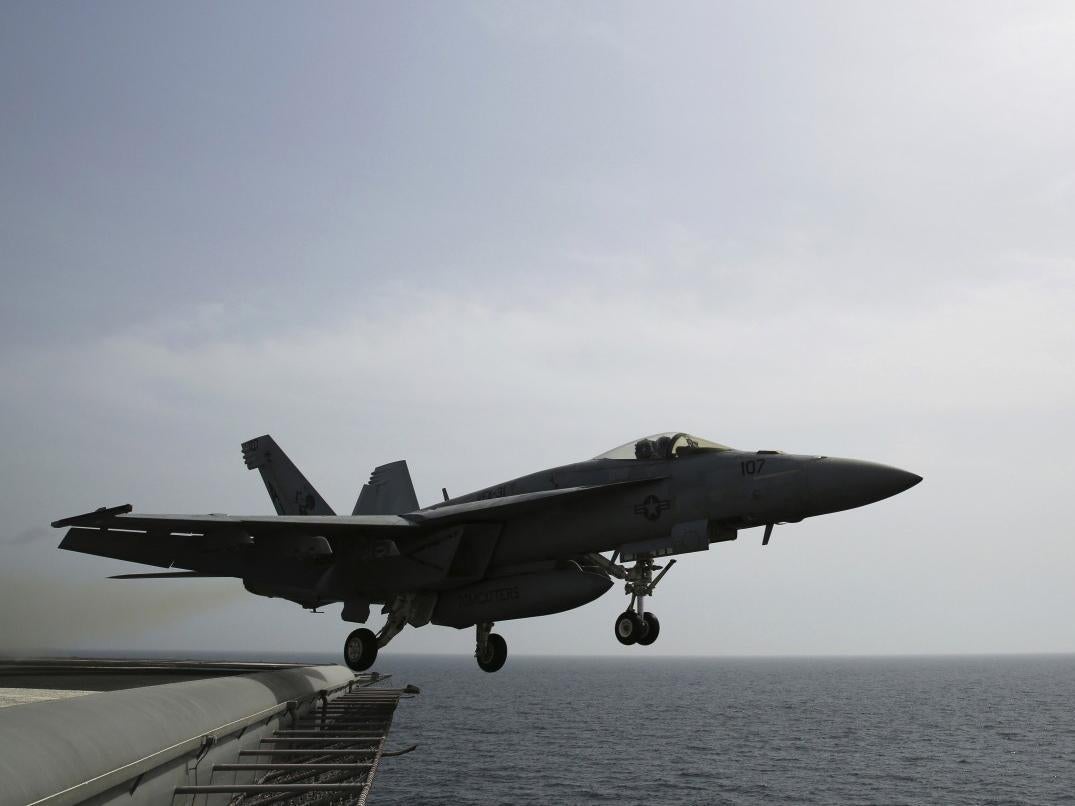British MPs should be ashamed – they wasted four vital years when they voted not to bomb Syria the first time round
The Syrian opposition was much stronger then than now and might have moved against Assad. And Russia was not propping up the Syrian President and telling him: 'We will not let you lose', as Vladimir Putin has promised since


Your support helps us to tell the story
From reproductive rights to climate change to Big Tech, The Independent is on the ground when the story is developing. Whether it's investigating the financials of Elon Musk's pro-Trump PAC or producing our latest documentary, 'The A Word', which shines a light on the American women fighting for reproductive rights, we know how important it is to parse out the facts from the messaging.
At such a critical moment in US history, we need reporters on the ground. Your donation allows us to keep sending journalists to speak to both sides of the story.
The Independent is trusted by Americans across the entire political spectrum. And unlike many other quality news outlets, we choose not to lock Americans out of our reporting and analysis with paywalls. We believe quality journalism should be available to everyone, paid for by those who can afford it.
Your support makes all the difference.Donald Trump’s intervention in Syria turns the spotlight back to the West’s failure to act against Bashar al-Assad when he used chemical weapons against his own people in 2013. British MPs played a critical role in that fateful decision.
David Cameron proposed limited air strikes and told the Commons that the aim was not regime change in Syria but to respond to a war crime. He worked hard to get Ed Miliband, the Opposition leader, onside and thought he had done so.
But Miliband had doubts, not least because he wanted to learn lessons from Tony Blair’s disastrous intervention in Iraq. He also wanted to keep Labour united; a sizeable number of his MPs would have voted against action, though the Government would have got its way with the Opposition’s backing.
So Miliband pulled the plug on Cameron and the Prime Minister suffered a humiliating defeat as the Commons voted against action by 13 votes. Thirty Tories also opposed intervention.
They did not know it at the time, but the MPs’ vote would have profound consequences. Barack Obama, who had said Assad using chemical weapons would be a “red line”, intended to launch a similar one-off attack with cruise missiles fired from US Navy destroyers in the eastern Mediterranean, just as Trump has now done.
But the Commons vote caused Obama to pause. He then got cold feet amid doubts in Congress and nothing happened. Some people think those doubts might have stopped him going ahead anyway. But Obama was furious with Cameron and it is clear that the Commons played a big part in letting Assad off the hook.
The wheel came full circle this week with the horrific gas attack in the rebel-held Idlib province, probably the same deadly nerve agent unleashed in an opposition-held area outside Damascus in 2013.
I don’t pretend to know what would have happened if the US and UK had intervened in 2013. Perhaps Assad would have survived a proportionate one-off attack by the West. But the Syrian opposition was much stronger then than now and might have moved against Assad. And Russia was not propping up the Syrian President and telling him: “We will not let you lose”, as Vladimir Putin has promised since.
So we have had four wasted years, and the growth of Isis, a terrorist state which exports jihadis to Europe. The death toll of the civil war has risen to an estimated 470,000, with 11 per cent of Syria’s population killed or injured.
Some 6.3 million Syrians have been displaced internally and 4.8 million have fled the country. The refugee crisis has transformed neighbouring countries and politics in Europe, helping the rise of anti-immigration populists and probably contributing to the Brexit vote. Remember Nigel Farage’s infamous poster headed “Breaking Point: The EU has failed us all”, which showed Syrian refugees crossing from Croatia into Slovenia but had nothing to do with Britain’s borders.
The MPs who voted against air strikes in 2013 should take a look in the mirror. As George Osborne, the former Chancellor, told an emergency debate on the crisis in Aleppo last December: “We are deceiving ourselves in this Parliament if we believe that we have no responsibility for what has happened in Syria. The tragedy in Aleppo did not come out of a vacuum; it was created by a vacuum – a vacuum of Western leadership, including American and British leadership. I take responsibility, as someone who sat on the National Security Council throughout those years, and Parliament should also take its responsibility because of what it prevented being done.”
The MPs’ decision in 2013 shows that the pendulum swung too far against military intervention after the UK’s chastening experiences in Iraq and Afghanistan.
Labour were not the only ones to make mistakes. Cameron still blames Miliband for blocking action against Assad and the wounds will doubtless be reopened by the gruesome pictures on our television screens this week. But Cameron’s ill-fated action in Libya is hardly a good advert for intervention either.
Perhaps current events in Syria will lead to a reappraisal and the pendulum will stop where it should be – bang in the middle, judging each case on its merits. The lesson from 2013 is that inaction can also carry a heavy price.
Join our commenting forum
Join thought-provoking conversations, follow other Independent readers and see their replies
Comments